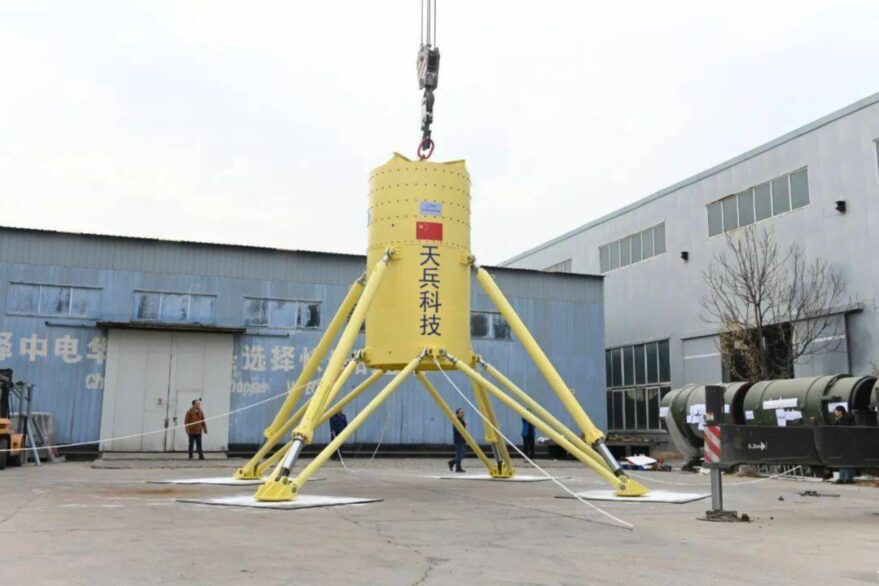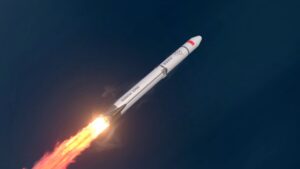Space Pioneer, full name Beijing Tianbing Technology Co., Ltd., closed a pre-B funding round worth “hundreds of millions of yuan” or at least 30 million of dollars, the company announced July 27.
The funds will be used for the first flight on the Tianlong-1 reusable kerosene-liquid oxygen launch vehicle. Few details of the Tianlong-1 rocket have been revealed. Space Pioneer stated in September 2020 that the first flight vehicle would have a payload capacity to low Earth orbit of more than three metric tons. The first flight was slated for 2021 but Space Pioneer offered no date for the Tianlong-1 launch with the funding announcement.
Space Pioneer says it also completed the final assembly of the Tiansuo-1 vertical takeoff, vertical landing test stage in recent days. Fellow Chinese commercial firms iSpace and Deep Blue Aerospace are also closing in VTVL test stage “hop” tests. Space Pioneer also performed multiple hot fire tests of its 30-ton-thrust HCP liquid engine in the first half of 2021.
Space Pioneer says it is developing low-cost, highly reliable launch vehicles to respond to the requirements of China’s national Satellite Internet project, launching domestic and international commercial satellites and generally boosting China’s space economy.
Notably it adds meeting the needs of a Chinese Space Station cargo project as an objective. China’s human spaceflight agency announced in January a solicitation for proposals for low-cost cargo transportation to assist space station operations.
China currently uses 13-metric-ton Tianzhou cargo spacecraft to supply its space station core module, using Long March 7 rockets. CMSA is looking to both state-owned and commercial companies for backup options as well as smaller, more economical supply missions. The overall goal was stated as developing a “flexible, efficient, diverse, and low-cost cargo transportation system.”

The latest Space Pioneer funding round was led by a Zhangjiagang city investment fund, private equity firm Jundu investment and Zijin Investment. Space Pioneer is establishing major production, manufacturing and research centers in Zhangjiagang, a port city along the Yangtze river.
This is the sixth round closed by Space Pioneer. Previous funding has come from entities including ZJU Joint Innovation Investment, linked to Zhejiang University.
Generally, funding for Chinese commercial space companies is seen coming from a mix of private venture capital, local and national investment funds, individuals, state-owned enterprises (SOEs), academic institutions like the Chinese Academy of Sciences, and banks.
Chinese commercial space companies have so far attempted just one launch in 2021, while China’s main state-owned contractor has carried 23 successful orbital launches. The sole commercial launch saw the failure of iSpace’s Hyperbola-1 solid rocket. The firm is looking to return-to-flight in the near future, while Galactic Energy, CAS Space, Expace and others are also preparing for new missions with solid rockets.
Meanwhile Landspace is preparing for an orbital test flight of its Zhuque-2 methan-liquid oxygen rocket. The mission is expected to be the first liquid rocket orbital launch attempt by a Chinese private company and a maker of progress in the sector since China opened launch to private capital in late 2014.



